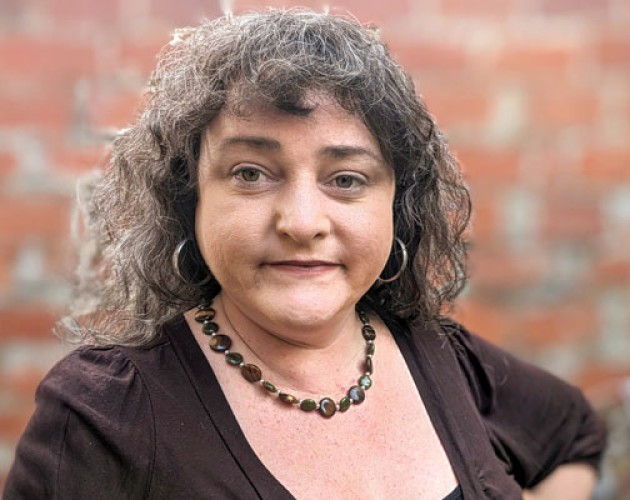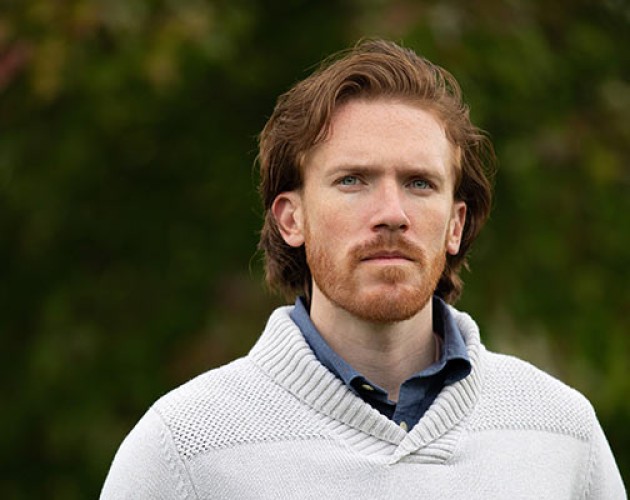

Ursa Minor is the student arts and literary journal of UC Berkeley Extension's Writing and Editing programs and was designed by students in our Art and Design programs.
As part of your education in the Post-Baccalaureate Certificate Program in Writing, you have the opportunity to share your prose with the community at large. Our students come from a variety of backgrounds—and not all knew that writing would become such an important part of their lives.
Are you ready to showcase your talent? We’re seeking submissions of poetry, fiction, creative nonfiction and artwork inspired by the astrophysical theory, Dark Matter, for the second edition of Ursa Minor. Submit your well-crafted writing by Jan. 2, 2017.
Maybe need some inspiration? Listen to a few of their poems and stories, and maybe discover your own.
Rob Fisher, "To Go to Paro"
Rob Fisher writes poetry and fiction and is a psychotherapist and international speaker. He is the author of Experimental Psychotherapy With Couples as well as many other publications. In his writing, Rob is interested in exploring the underpinnings of human interactions. He has just completed his first novel, The Weeping Buddha.
My poem "To Go to Paro" was inspired by a poem by Adam Zagajewski, entitled "To Go to Lvov." It follows a similar format, but of course, the content and the words—and the sentiment—are quite different. "To Go to Paro" came from a trip I took to Bhutan. Paro is a little town of about 20,000 people that is slowly becoming Westernized and materialized. Bhutan is an ancient Buddhist kingdom, which is trying to reconcile with how to keep their traditional culture in the face of the onslaught of Western materialism. I could see it eroding when I was there—not just in Paro, but in cultures around the world that are so influenced by the desire for an easier life and for material acquisitions that we have here in the West. And loss of things that are beautiful and sacred.
Hungry, maybe desperate For a fix of something larger Something as big as the sun perhaps Or bigger.
There was always too much sky in Paro Too much wind at the top of the world The mountains were too high, The air too thin The dogs on the street too surly Randomly fighting as the day starts to cool. The people too poor and too content in Paro No right to be singing and smiling With so little to eat.
The old temple at the edge of the town (Some town with one street) Built strange and round Unlike the others Three stories up and a basement below Where you can drag an iron chain around Three times only Then dropping it climb to the top Feeling lighter and lighter Past the orange flaming wrathful deities, all fangs and fury Past the Green Tara of compassion, Blessings upon blessings, Past the vaguely smiling golden Buddha And then Breathless in the thin air at the top panting and looking out at the highest peaks of the world You know You are ready to fly
There was too much purity in Paro Too much hope Eclipsed by cell phones and dreams of a TV set. And now People rush by the temple. The gate has rusted The priest forgotten the rituals the ladder to the rooms upstairs taken by the workman who needed it to paint the new five story apartment building downtown Creating shadows on the criss-crossed streets Beige.
The old priest, almost blind Circumambulates too many times the dank and mildewed room in total darkness Almost remembering the many candles and sharp scented incense That used to guide his way
Now there are too many people in Paro moved here from the villages Hoping for more than white rice and dahl after wrenching potatoes from among the stones. Too much flash and too little sun clouded by the smog Too many neon lights now And pretty girls in short skirts Looking for boys that are not from their village in unlit alleyways Too many fumes from dented cars with too many horns impatient as the day grows long
Not the big silver clad ceremonial horns That invited the gods, That bleated strong and clear above the monastery Not even the horns of the goats that used to graze in the fields Now paved over and surrounded by gift stalls Selling replicas Plastic Buddhas And temple bells made of cheap tin from Beijing
There were too many flowers In Paro Now the dogs eat garbage from the street Paved with dirt, rough stones and Broken glass.
* Paro is the second largest city in Bhutan. Population around 25,000.
Lisa Wenzel, "Mercury" and "Properties of Water"
When she writes, Lisa Wenzel (a UC Berkeley alumna and current Extension student) takes pleasure in looking for unexpected metaphors or turns. She strives to find the rhythm in the line, along with incorporating sensory words and details.
Read Lisa Wenzel's introduction to her poem "Properties of Water." (transcript)
My poem "Properties of Water" is about the misunderstandings that can develop between two people who are not communicating effectively. Perhaps they knew how to talk to each other at one time, or maybe they only thought they did. Regardless, neither party is listening to the other. As a result, they misinterpret each other's responses.
Read Lisa Wenzel's poem "Properties of Water." (transcript)
Properties of Water
In the holding power of the anchor, a specific gravity. Equal lengths of braided twine: the rope and cable bind. In our ears, a rush
and pull of headwinds and mid-tides. Wet sand clings to bare limbs as we cling to the rocks and wade the shallows to the shoreline.
We're surrounded by sinuous energy: its electric transfer and exchange, but a day that held such promise has turned bitter and gray.
The weather clouds and stifles, our words abandoned in waves.
Read Lisa Wenzel's introduction to her poem "Mercury." (transcript)
When I wrote the poem "Mercury" I was informed by a particular moment in time. In this poem, a young girl struggles with the after-effects of a specific event, one she does not fully understand. There is intrigue in the questions this character is afraid to ask, in the details that are only hinted at. You will be left with a mystery to unravel.
Read Lisa Wenzel's poem "Mercury." (transcript)
Mercury
I hesitate in the doorway, wincing each time I swallow. You stand with your back to me, a crumpled handkerchief in your hand.
Ripples rise as the teapot keens and water condenses on the windowpane. Can I ask for what I need with salt and steam, lemon and honey, liquid Jello, the comforting taste of cherry?
I want to be the charm that hides in your pocket. I want to be the other image in the locket, a daughter found—not lost. My lips attempt to locate the words. My tongue remains silent.

